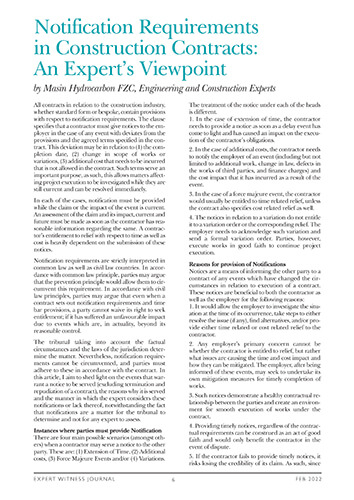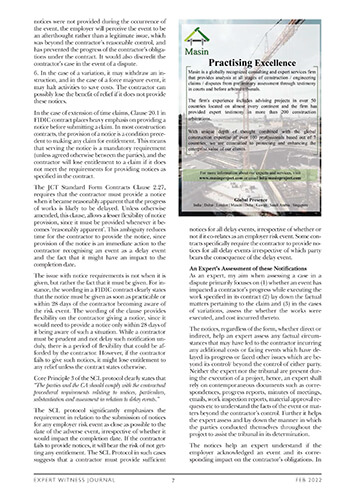
Notification Requirements in Construction Contracts: An Expert’s Viewpoint


Reasons for provision of Notifications
Notices are a means of informing the other party to a contract of any events which have changed the circumstances in relation to execution of a contract. These notices are beneficial to both the contractor as well as the employer for the following reasons:
- It would allow the employer to investigate the situation at the time of its occurrence, take steps to either resolve the issue (if any), find alternatives, and/or provide either time related or cost related relief to the contractor
- Any employer’s primary concern cannot be whether the contractor is entitled to relief, but rather what issues are causing the time and cost impact and how they can be mitigated. The employer, after being informed of these events, may seek to undertake its own mitigation measures for timely completion of works.
Frequently Asked Questions
Get answers to frequently asked questions about everything we do.
What are notification requirements in construction contracts?
Notification requirements are clauses in construction contracts that obligate a contractor to inform the employer of any events that deviate from agreed terms — such as delays, additional costs, force majeure events, or scope changes — within a specific timeframe.
When should a contractor provide a notice?
Notices must be given as soon as the contractor becomes aware of an event that may impact the project. Timing is crucial — for example, FIDIC contracts typically require notice within 28 days, while JCT contracts expect notification as soon as a delay is “reasonably apparent.”
Why is providing timely notification so important?
Timely notices:
- Allow the employer to investigate and respond promptly.
- Help mitigate project delays or costs.
- Demonstrate good faith and foster transparency.
- Serve as vital evidence in case of a dispute.
- Failing to provide notice may lead to the loss of entitlement to claims, both for time and cost.
What are the main scenarios requiring notification?
The four most common situations are:
- Extension of time due to delays.
- Additional costs from changes in law, third-party issues, etc.
- Force majeure events that impact progress.
- Variations to the scope of work requiring employer approval.
How do experts and tribunals treat notifications in disputes?
Experts assess:
- Whether events genuinely impacted project progress or costs.
- The presence and adequacy of notices and supporting documents.
- Employer acknowledgment of the event and its consequences.
While experts evaluate the factual background, the tribunal ultimately decides whether contractual notification obligations were met and if relief should be granted.